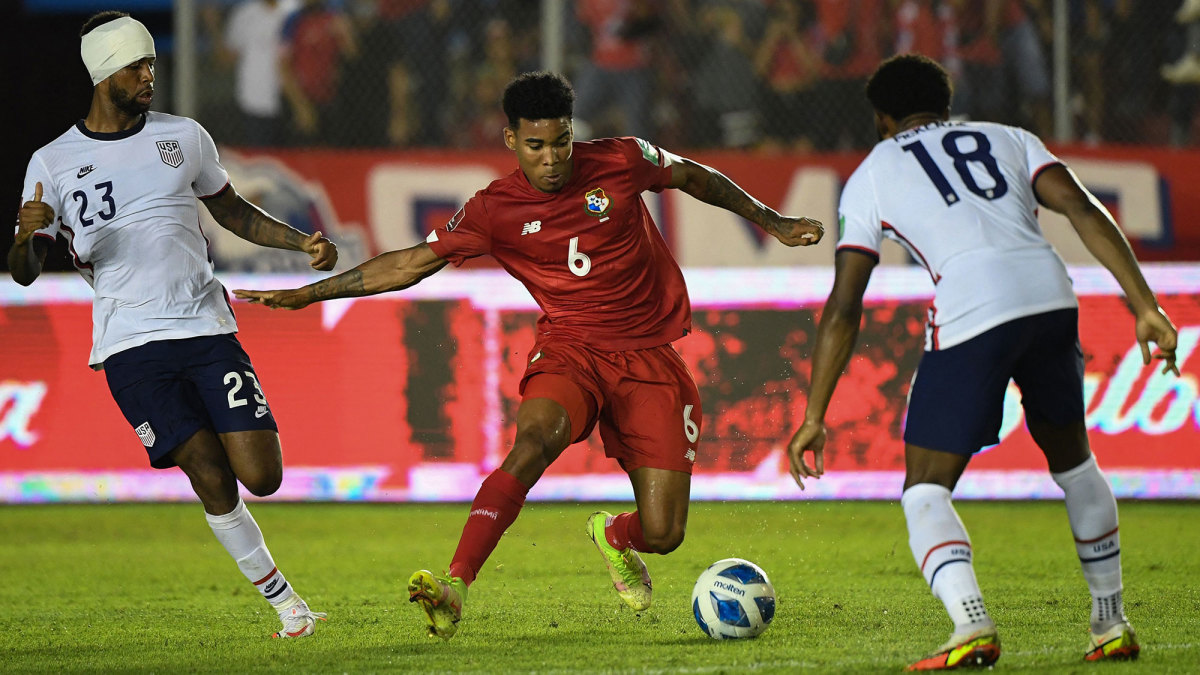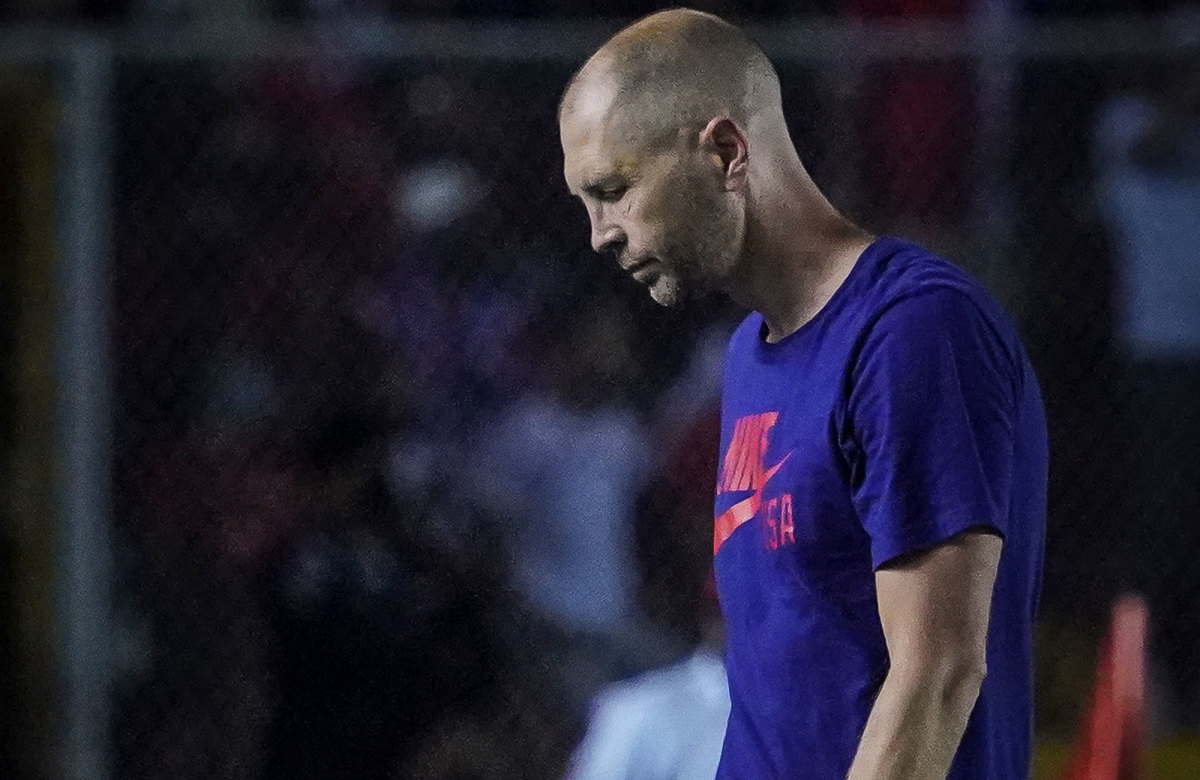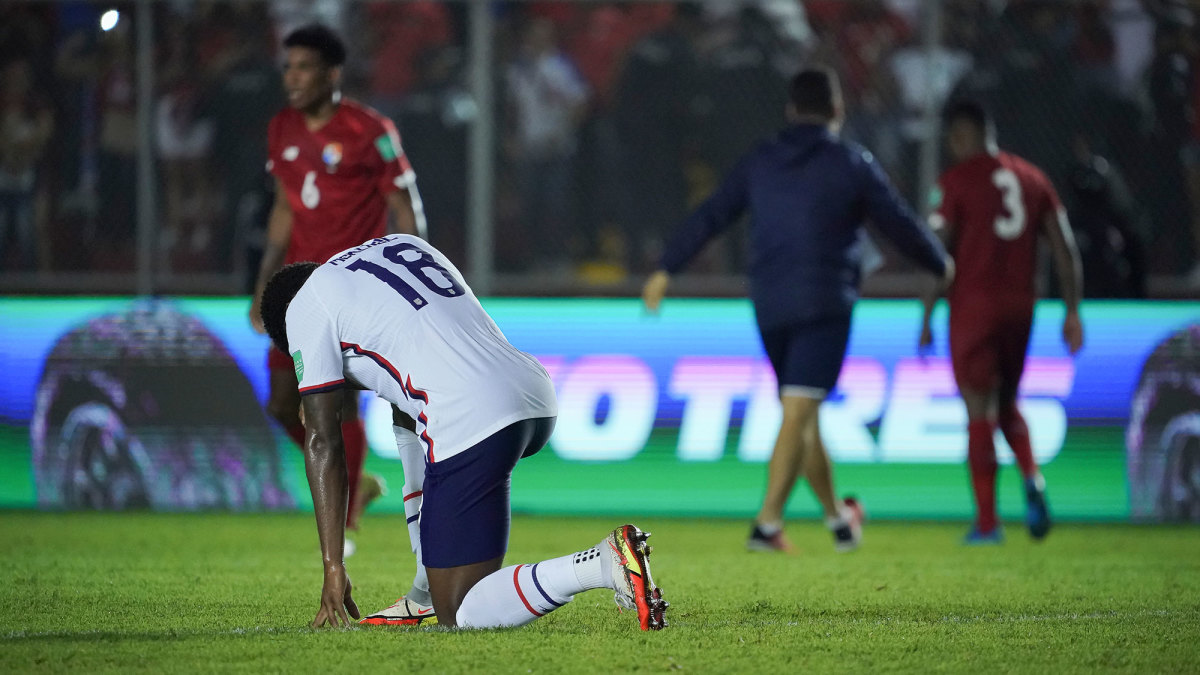USMNT’s Next Goal Is to Make Defeat in Panama Just a Short-Term Setback

PANAMA CITY, Panama — Nothing connected to a heavily-rotated U.S. men’s national team was going to flourish or survive in an environment like this—not its commitment to play on the front foot, not players who’ve typically been energetic and effective, and not the 13-game unbeaten streak that had extended into the start of World Cup qualifying.
Panama played with vigorous desperation in an atmosphere perfectly suited for Los Canaleros. The Estadio Rommel Fernández, which seats about 32,000, was cacophonous and close to capacity. And the air hovering over it may have been heavier than the occasion.
The humidity easily surpassed 80% at kickoff, and the thick, soupy heat was stifling. Playing in those conditions is exacting and exhausting. It requires immense fortitude, physical commitment and attention to detail under duress. And the visitors didn’t have nearly enough of those qualities here on Sunday evening as they fell, 1–0, thanks to an aimless attack, an inability to equal Panama’s energy and a set-piece goal early in the second half.
“It’s sports. It’s humans. There’s no one explanation for it,” U.S. coach Gregg Berhalter said. “We didn’t have that pop. We didn’t have the legs that we needed, and we suffered for it. We weren’t great in duels. Panama, we talked about being a very physical team, a very difficult team to break down, and that’s exactly what they were.”
Midfielder Kellyn Acosta, who finished the match with his head wrapped heavily following a collision with Panama’s Armando Cooper, was a forlorn and fitting symbol of the attrition the Americans suffered.

“It was a hot day—humid—crowd was into it. And overall, it wasn’t a good performance by all of us,” he said a few minutes after the final whistle. “We didn’t match their intensity. They came from the front in the first minute … and it was hard for us to get into the game.”
The defeat was the Americans’ first in nine all-time qualifiers between the sides (and only the second ever), and it came poignantly on the anniversary of the stunning loss in Trinidad that kept the U.S. out of the 2018 World Cup.
Sunday’s result doesn’t come with anything resembling the finality or devastation experienced four years ago, however. It isn’t a referendum on the current player pool or the 2022 qualifying campaign. It was a night on which a refreshed squad missing most of its first-choice players simply failed to come to life in adverse conditions. The U.S. was second-rate in every phase, and deserved to leave Panama empty handed. But at 2-1-2, it remains in second place in Concacaf’s Octagonal with Wednesday’s game against Costa Rica (1-1-3) in hospitable Columbus, Ohio, just around the corner.
Concacaf Octagonal after match 5/14:
— SI Soccer (@si_soccer) October 11, 2021
🇲🇽: 11 points (+5 GD, 8 GF)
🇺🇸: 8 points (+4 GD, 7 GF)
🇵🇦: 8 points (+3 GD, 5 GF)
🇨🇦: 7 points (+3 GD, 6 GF)
🇨🇷: 6 points (0 GD, 3 GF)
🇸🇻: 5 points (-3 GD, 2 GF)
🇭🇳: 3 points (-4 GD, 2 GF)
🇯🇲: 2 points (-6 GD, 2 GF)https://t.co/SQob173uZe pic.twitter.com/Q9IRBj0S4d
It was a match about the long haul. Berhalter likes to say that every qualifier is a final, but his approach on Sunday was about considering the big picture, the fitness of his players and the gradual ebb and flow over the course of the seven-month, 14-game Octagonal. After easily defeating Jamaica on Thursday, the manager looked ahead and decided he wasn’t going to risk draining his team with 10 games still to go. Already playing without Christian Pulisic and Gio Reyna this month and Weston McKennie, Antonee Robinson and Zack Steffen on Sunday, Berhalter swapped out seven of the 10 field players who started the Jamaica match. Among those on the bench at the Rommel Fernández were Tyler Adams, Brenden Aaronson and 18-year-old scoring sensation Ricardo Pepi. It was a lineup that lacked much creativity and seemed to anticipate the grind that Sunday’s game would become. But in practice, it wasn’t suited for either style of play.
“We know we’re playing in extreme heat, extreme humidity. We know we travel four-and-a-half hours and we know we have another game on Wednesday and we wanted to rotate players. If it didn’t work, it’s on me and it’s my responsibility, or our responsibility as a staff. But the guys tried. They tried their best,” Berhalter said.
“The conditions that we’re dealing with here, with the travel, with the weather, made it complicated. And we had to make a somewhat risky decision, and the good thing is that we’re still in second place,” he added.

It isn’t as if Berhalter was deploying high school players, however. Acosta, who was so imposing against Mexico in the Gold Cup final and throughout much of the summer, struggled with the ball at the base of the U.S. midfield. Yunus Musah and Sebastian Lletget failed to connect with the front three, the press was incoherent and ineffective and the Americans failed to establish any possession or put a single shot on target.
“We were poor. We were really poor with some of our passing and some of our movement,” Berhalter admitted.
Goalkeeper Matt Turner had to bail out his teammates on a couple of occasions in the first half. But in the 54th minute, he was hung out to dry when his defense failed to deal with a dangerous corner that Nashville SC’s Aníbal Godoy headed home. Panama created chaos all night with corner kicks whipped close to goal, and that tactic proved to be the difference.
The second-half insertion of Adams, Aaronson, Pepi and a formation tweak helped stabilize proceedings, but it wasn't nearly enough to threaten the hosts.
The roar that followed Panama’s goal added even more weight to the air over sprawling Panama City, and the clamor didn’t stop until the seven minutes of stoppage time elapsed. The home team’s energy was absorbed by its supporters, three of whom managed to negotiate the fences and traverse the track before racing onto the field in the closing moments. Chants of “Sí se puede” filled the stadium. Panama needed this game after losing last week in El Salvador, and it grabbed ahold of it from the start. The U.S. was overwhelmed by the scene, the setting and the stakes.

“Thats just part of Concacaf. It's part of qualifying,” said center back and captain Walker Zimmerman, who was among several players cramping in the second half. “When we have these three-game windows, it’s about trying to push through mentally and physically and do whatever it takes to try to come away with a win.
“Guys are fighting through it. It’s thick. It’s hot, and your legs toward the end of the game can sometimes start to go,” he continued. “But they had to deal with that too. They had a game on the same day that we did. They traveled and they had to play. So there’s no excuse there.”
Panama clearly was the more comfortable team on Sunday. Los Canaleros coach Thomas Christiansen wore a full suit on the sideline despite the conditions. They embraced the heat and hysteria, and they were lifted by them in return.
Berhalter will have to have his A-team ready to go in Columbus, and his players will have to figure out how to rebound from a competitive defeat for the first time since the fall of 2019. Not much good came from Panama City apart from the fact that several key players now should be able to finish off this month’s qualifying window with a full tank. Otherwise, it’s a match that’s best forgotten.
“For us, it’s about making sure everyone has a short-term memory. We move on. We digest this quickly,” Zimmerman said.
“You can’t win every game. Obviously we want to, but sometimes when you get kicked in the mouth you learn from it and you grow from it,” Acosta said. “It was one of those things where luckily we got it early [in the Octagonal] and we learn from our mistakes this game and move on to Wednesday’s game and try to get the result at home.”
More USMNT Coverage From Brian Straus:
